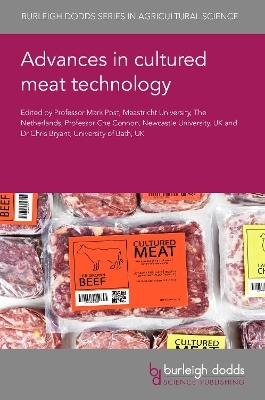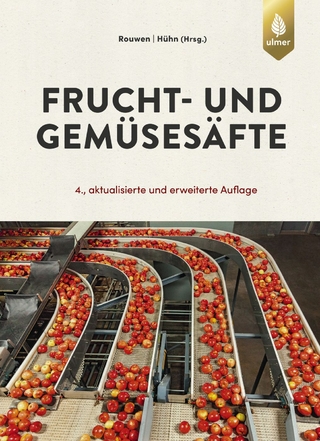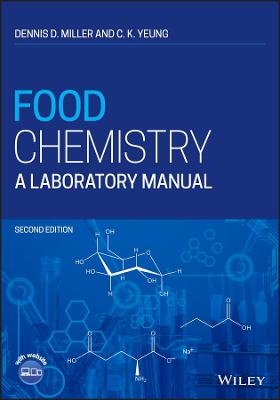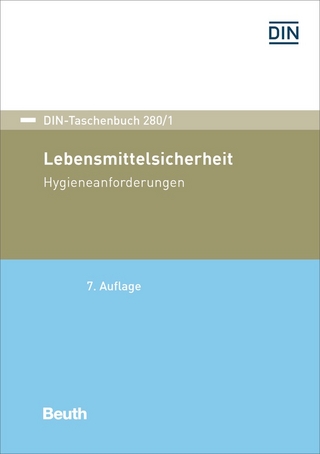
Advances in Cultured Meat Technology
Burleigh Dodds Science Publishing Limited (Verlag)
978-1-80146-376-8 (ISBN)
With the global population estimated to reach 9 billion by 2050, agricultural production must align with this growth to alleviate any further burden on our current food systems. More sustainable and alternative modes of production are required to ensure that this overburden doesn’t occur and that the food security of millions isn’t compromised in the process.
Advances in cultured meat technology reviews the growing interest and emergence in the field of cellular agriculture as one possible solution to achieving this. The book reviews the major technologies used in cultured meat product development, including cell line sourcing, cell growth media, bioreactors for cell multiplication and tissue engineering using scaffolds. The need to establish regulatory frameworks to permit the creation and trade of this new type of product is also highlighted, as is the key issue of consumer acceptance of this new technology.
In its comprehensive exploration of the recent advances in cultured meat, the book showcases the potential of cultured meat production in alleviating the burden on our food systems, as well as some of the welfare and sustainability issues that arise during traditional livestock production.
Dr Mark Post is Professor of Sustainable Industrial Tissue Engineering in the Faculty of Health, Medicine and Life Sciences at Maastricht University, The Netherlands. He is also widely regarded as a pioneer in cultured meat technology, producing the world’s first cultured meat hamburger in 2013. He co-founded the company MosaMeat to develop cultured meat products on a commercial scale. Dr Che Connon is Professor of Tissue Engineering and FMS Director of Business Development at Newcastle University, UK. Professor Connon is widely recognised for his pioneering research in tissue engineering in such areas as the use of peptide/polymer gels in regenerative medicine and ‘super tissue engineering’ to develop biomaterials with a range of functions, including use in developing lab-grown meat. To this end he has spun out two companies (3D Bio-Tissues Ltd and CellRev Ltd) that look to solve critical issues in the production and texture of scaffold-free cultivated meat. Dr Chris Bryant is an Honorary Research Associate at the University of Bath, UK and Director of Bryant Research, which works with alternative protein companies and others to advance the protein transition. With a background in psychology, he is particularly known for his research on understanding consumer attitudes to and acceptance of cultured meat products as well as broader attitudes to animal farming, welfare, vegetarianism and veganism. Dr Mariana Petronela (Petra) Hanga BEng, PhD, FHEA, AMIChemE is a Lecturer in Biochemical Engineering at University College London, UK. Dr Hanga holds a BEng in Biochemical Engineering and a PhD in Regenerative Medicine from Loughborough University, UK. After graduating her PhD, Dr Hanga took on a postdoctoral position at Loughborough University on a project funded by the Bioprocessing Research Industry Club (BRIC) BBSRC. After that, she joined Aston University (Birmingham, UK) as a Lecturer in Biological Engineering. Her research addresses one grand challenge: food and nutrition for health, by advancing cultivated meat technologies that ultimately will enable a radical shift away from factory farmed animal products. Dr Hanga’s multidisciplinary strengths and expertise include an understanding of the whole cell culture bioprocess from inoculation to cell harvest, including engineering characterisation of bioreactors and biological characterisation of cells. Dr Hanga’s research has been funded to date by the Good Food Institute, the UK Research Councils (BBSRC and EPSRC), and the European Commission. Additionally, Dr Hanga is a committee member and the travel bursary secretary for the Biochemical Engineering Subject Interest Group (BESIG) in the Institution of Chemical Engineers (IChemE), a member of the European Society of Animal Cell Culture - UK (ESACT-UK) and of the Industrial Biotechnology Leadership Forum (IBLF). She also sits on the Editorial Board for the journal Biotechnology Letters and she is a regular reviewer for journals such as Biotechnology Journal, Processes and Foods and for funding bodies such as The Good Food Institute (US), Singapore Food Agency and A*STAR, Israeli Ministry of Innovation, Science and Technology - Israel, Mitacs Accelerator Programme Canada. Dr Hanga is also a co-founder and the Chief Scientific Officer of a cultivated meat start-up based in Birmingham, UK - Quest Meat Ltd. Jette Feveile Young is associate professor at the Institute of Food Science, Aarhus University where she has been leading a science group on Differentiated and Biofunctional Food since 2009. She has more than 20 years of research experience within meat science and in vitro cell based techniques including primary muscle cells has led to her interest in several aspects of cultured meat. She is involved in and leads several projects including a CellFood hub at Aarhus University. John Ellersick is the Founder & President of Next Rung Technology, an engineering and consulting firm that focuses on commercializing sustainable process technologies. Mr Ellersick has a deep expertise in the development and commercialization of alternative protein and cultivated meat technologies, which are crucial elements of addressing global warming as well as sustainable land and water use and global proteins production. In addition to serving as President of Next Rung, John has previously served as VP of Operations and Manufacturing at Oasys Water, held director level positions with Myriant Corporation and Mascoma, all building off fundamental engineering leadership roles at AECOM and Raytheon Engineers & Constructors (Badger). John has an MS Engineering Management degree from Tufts University and a BS Chemical Engineering from Northeastern University.
Part 1 General
1.Cultured meat technology: an overview: Apeksha Bharatgiri Goswami, James Charlesworth, Joanna M. Biazik, Mark S. Rybchyn and Johannes le Coutre, University of New South Wales, Australia;
2.Talking points on the cultural politics of cultured meat: Neil Stephens, University of Birmingham, UK; and Alexandra Sexton, University of Sheffield, UK;
3.Creating a regulatory framework for cultured meat products: Singapore: Johnny Yeung, Yong Quan Tan, Siew Herng Chan, Kern Rei Chng, Calvin Yeo, Jer Lin Poh, Teng Yong Low and Joanne Sheot Harn Chan, National Centre for Food Science, Singapore;
4.Creating an infrastructure for cultured meat: Irfan Tahir, The University of Vermont, USA; Miranda Stahn, Independent Consultant, Canada; N. Stephanie Kawecki, University of California Los Angeles, USA; Vicky Andriessen, Mosa Meat, The Netherlands; Bianca Datta, Massachusetts Institute of Technology, USA; Dwayne Holmes, Stichting New Harvest, The Netherlands; Lejjy Gafour, CULT Food Science Corp, Canada; and Isha Datar, New Harvest Inc., Canada;
Part 2 Technologies
5.Cell line sourcing and characterization for cultured meat product development: Leonard Nelson and Richard Siller, Occam Biosciences, UK; and Gareth Sullivan, Occam Biosciences, UK and Oslo University Hospital, Norway;
6.Developments in cell culture media for cultured meat applications: Andrew J. Stout, Tufts University, USA;
7.Bioreactors for cell multiplication in cultured meat product development: Stefan Schlößer and Philipp Nold, Eppendorf SE, Germany;
8.Tissue engineering using scaffolds in cultured meat product development: Iris Ianovici, Idit Goldfracht, Yana Shaulov Dvir, Hagit Shoyhat and Shulamit Levenberg, Technion - Israel Institute of Technology, Israel;
9.Scaling cell production sustainably in cultured meat product development: Panagiota Moutsatsou, Mosa Meat, The Netherlands; Paul Cameron, University College London, UK; Ben Dages, Aston University, UK; Alvin W. Nienow, University College London and University of Birmingham, UK; Gary Lye, University College London, UK; Eirini Theodosiou, Aston University, UK; and Mariana P. Hanga, University College London and Quest Meat Ltd, UK;
Part 3 Quality and sustainability issues
10.Developing cultured meat as a food product: J. F. Young, A. Abraham, M. K. Rasmussen, S. Skrivergaard and M. Therkildsen, Aarhus University, Denmark;
11.Assessing the environmental impact of commercial-scale cultivated meat production: Hanna L. Tuomisto, University of Helsinki and Natural Resources Institute Finland (Luke), Finland;
12.Consumer attitudes to cultured meat products: improving understanding and acceptance: Christina Hartmann and Michael Siegrist, ETH Zürich, Switzerland;
13.Techno-economic analysis for cultivated meat production: John P. Ellersick, Next Rung Technology, LLC, USA; Elliot Swartz, The Good Food Institute, USA; and Reina Ashizawa, Next Rung Technology, LLC, USA;
| Erscheinungsdatum | 14.10.2023 |
|---|---|
| Reihe/Serie | Burleigh Dodds Series in Agricultural Science |
| Co-Autor | Dr Apeksha Bharatgiri Goswami, Dr James Charlesworth |
| Zusatzinfo | Color tables, photos and figures |
| Verlagsort | Cambridge |
| Sprache | englisch |
| Maße | 152 x 229 mm |
| Gewicht | 745 g |
| Themenwelt | Technik ► Lebensmitteltechnologie |
| Technik ► Umwelttechnik / Biotechnologie | |
| ISBN-10 | 1-80146-376-X / 180146376X |
| ISBN-13 | 978-1-80146-376-8 / 9781801463768 |
| Zustand | Neuware |
| Haben Sie eine Frage zum Produkt? |
aus dem Bereich


